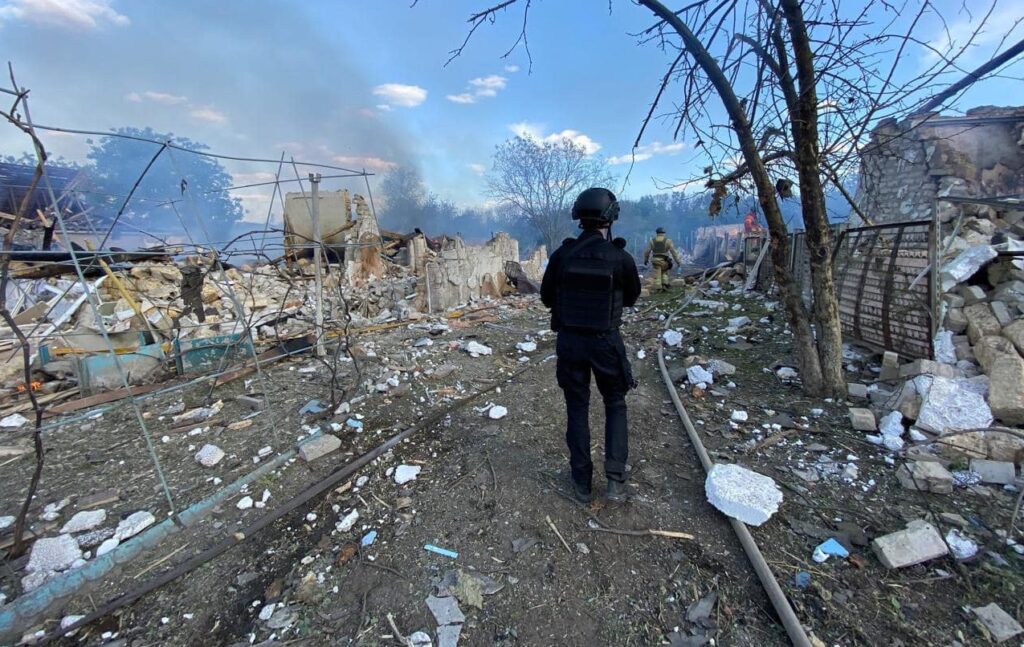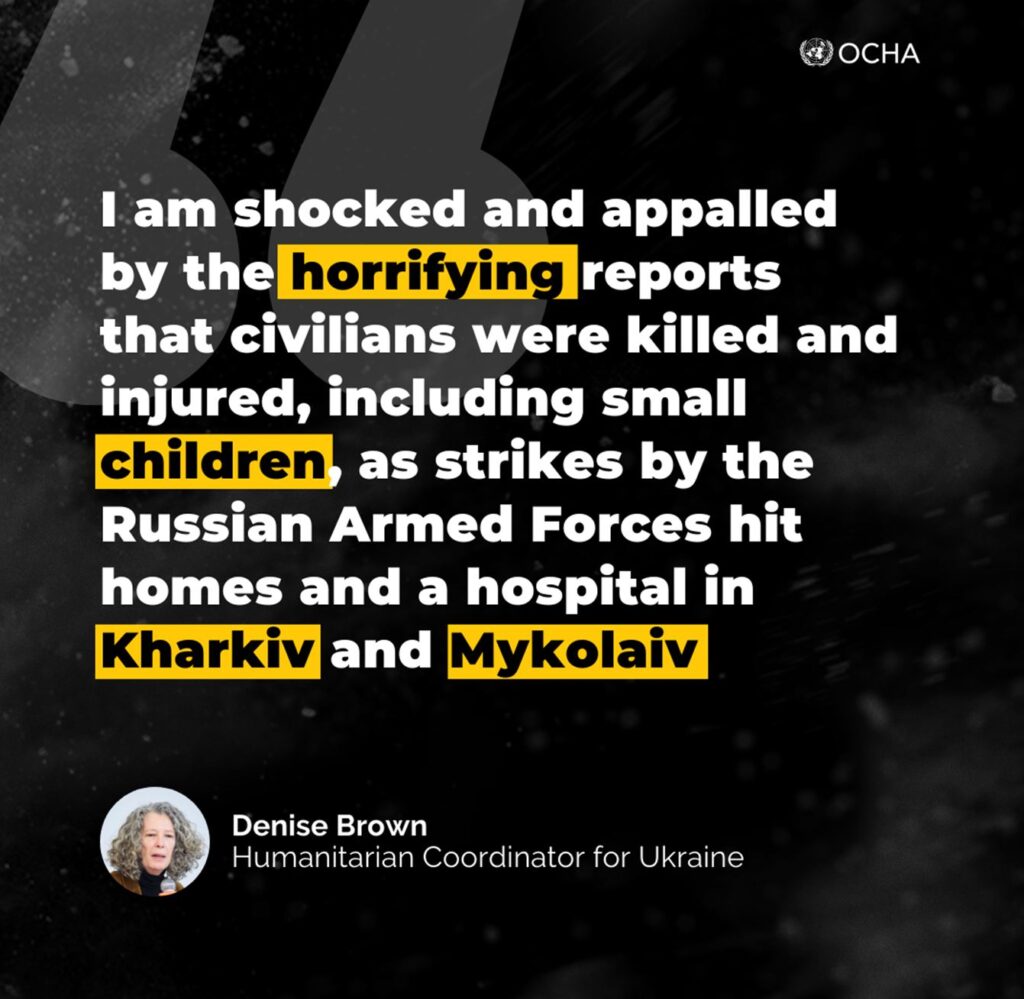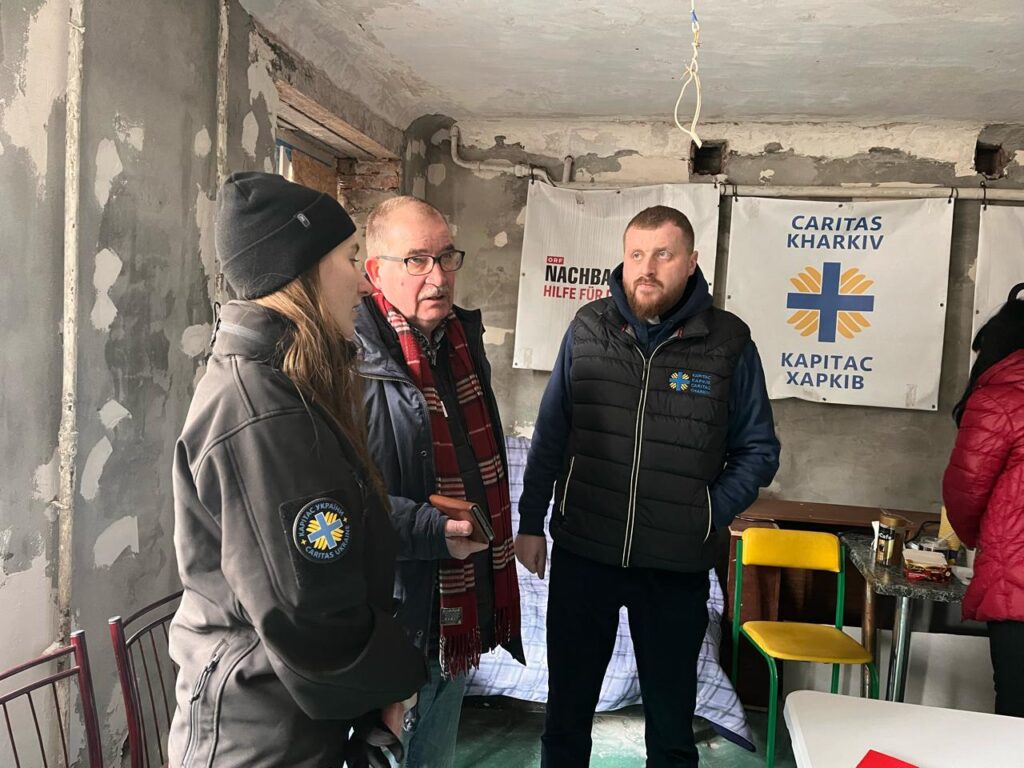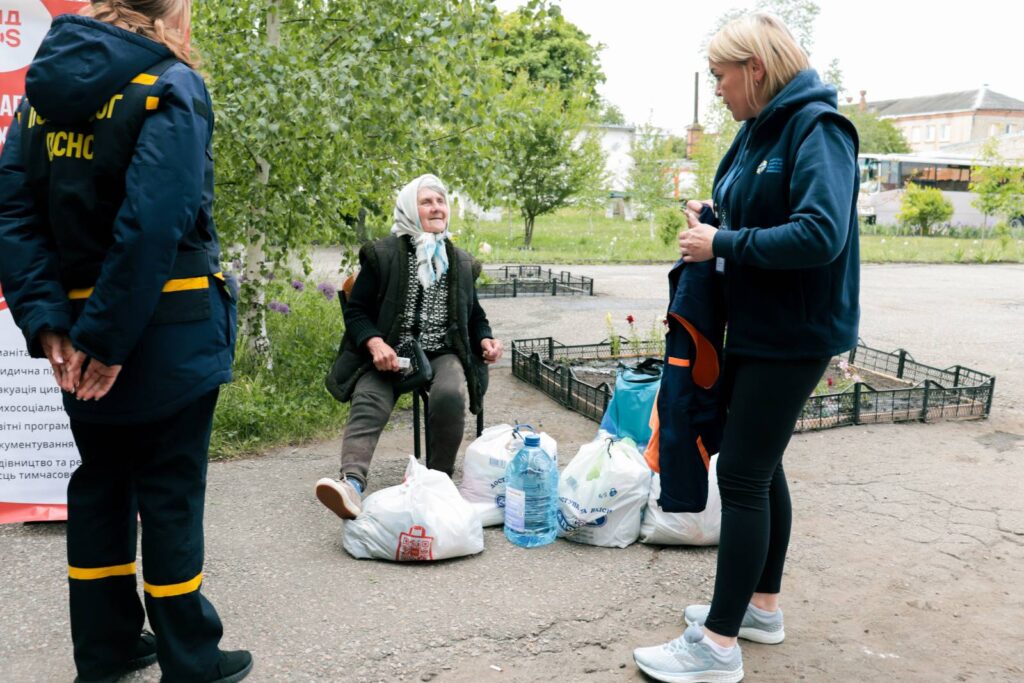It was Ukraine’s biggest victory since the Russian invasion in 2022: the liberation of the Kharkiv region. In the past weeks, Russian troops have been attacking the area again, severely exacerbating the already precarious situation. Cordaid and partner organisation Caritas Ukraine are setting up an emergency response for the victims of the ongoing conflict. ‘The population is experiencing some kind of grim déjà vu.’

At the beginning of this week, Caritas Ukraine started communicating about the alarming situation in Kharkiv. They reported attacks on civilians and numerous bombardments, destroying homes and essential infrastructure.
Evacuations
In a situation update, the United Nations Office for the Coordination of Humanitarian Affairs (OCHA) reports that the Ukrainian government and aid organisations have evacuated an estimated 8,000 people between May 10 and 14, including more than 600 children.
OCHA: ‘As the security situation deteriorates, people are fleeing to Kharkiv City, as well as parts of the region less affected by the new wave of strikes, and to other areas in Ukraine. Between 10 and 13 May, over 14,000 people – out of the 60,000 residents estimated to have remained in the six affected municipalities – are estimated to have fled.’

‘The widespread nature of these attacks underscores the urgency of the situation and the need for immediate action to protect civilian lives,’ Caritas Ukraine wrote in a press statement.
A second attack
‘Once again, people find themselves under great threat,’ says Paul Borsboom, humanitarian coordinator at Cordaid. Borsboom is an expert in the field of water and sanitation and has been working closely with his Ukrainian colleagues for years. He recently visited the conflict zone.
‘A lot needs to be done for the victims of this conflict, but safe drinking water is the first thing we must provide to make sure people can still live in dignity.’
‘So much has been destroyed. Entire villages already lay in ruins,’ he remembers. ‘These places are now being attacked a second time. We can’t begin to imagine how tough this is on the people who were still living in the area or had only just returned.’

This often concerns the elderly or other people in particularly vulnerable positions, without the means to move to safer areas. Borsboom: ‘In many cases, they were unable to flee in the first place or they returned because it’s too hard for them to settle in a strange city as a displaced person. A lot needs to be done for the victims of this conflict, but safe drinking water is the first thing we must provide to make sure people can still live in dignity.’
The response of Cordaid and Caritas Ukraine
With Cordaid’s support, in the coming months, the staff and volunteers of Caritas Ukraine will rehabilitate existing water installations, drill new boreholes and install filters to guarantee a safe water supply.

Furthermore, Caritas Ukraine assists people who remain in the border areas with food and hygiene products, emergency shelter repair kits, and generators for power supply.
The assistance to the evacuated and displaced population in shelters and centres across the country consists of providing meals, shelter, child support, psychosocial counselling, and tailored care for people with disabilities.
‘This region has already been through so much hardship,’ Borsboom says. ‘Now, the population is experiencing some kind of grim déjà vu and this time around, they might suffer even more than the first time. This makes the situation extremely worrying. We must take action.’
Read Caritas Ukraine’s urgent appeal for more humanitarian assistance in the Kharkiv region.